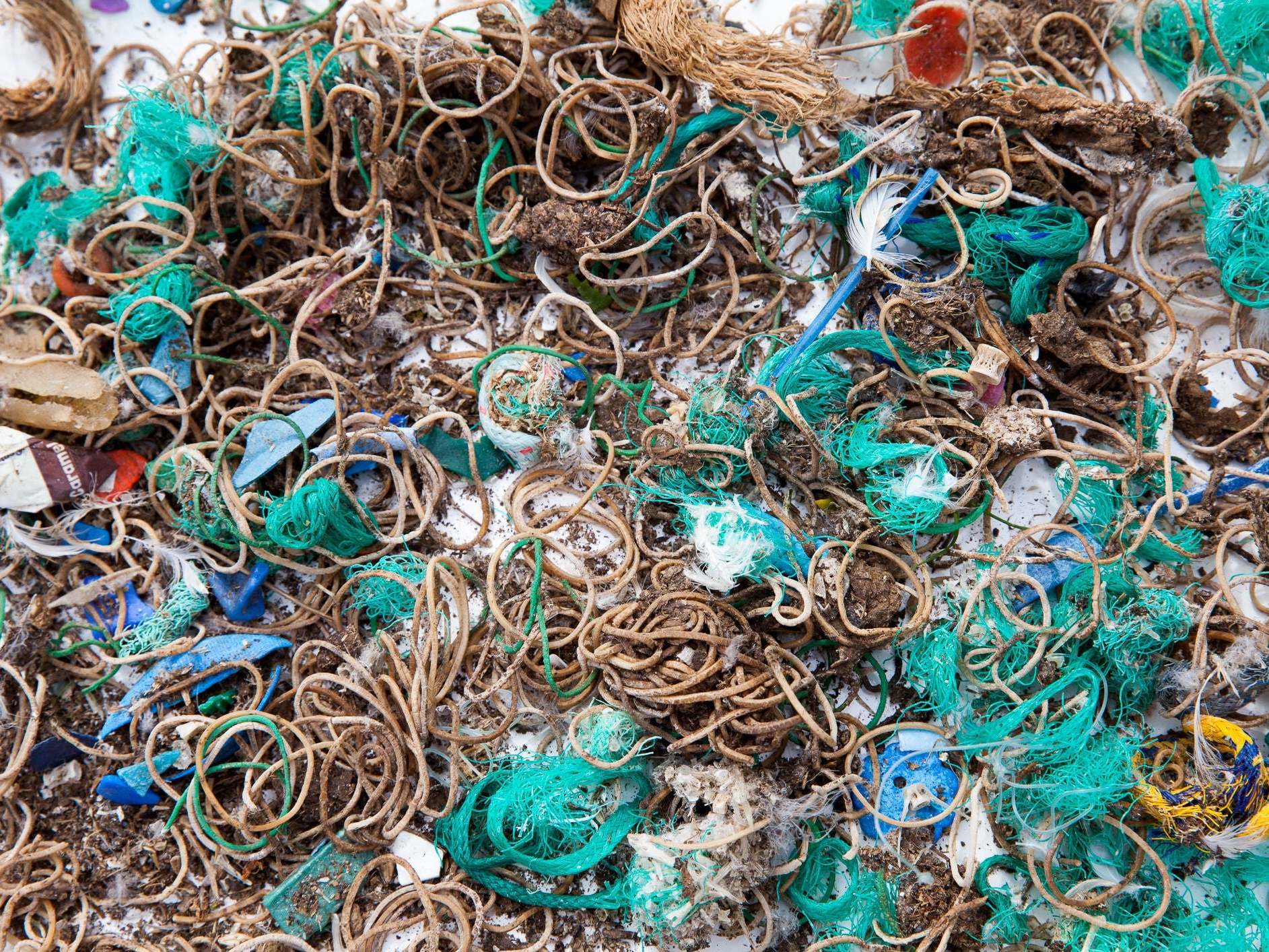Mystery of Cornish island strewn with rubber bands solved by seabird experts
‘Gulls can live up to 25 years so that’s more than two decades of hoovering up the rubbish we chuck in the oceans,’ scientist says

Your support helps us to tell the story
From reproductive rights to climate change to Big Tech, The Independent is on the ground when the story is developing. Whether it's investigating the financials of Elon Musk's pro-Trump PAC or producing our latest documentary, 'The A Word', which shines a light on the American women fighting for reproductive rights, we know how important it is to parse out the facts from the messaging.
At such a critical moment in US history, we need reporters on the ground. Your donation allows us to keep sending journalists to speak to both sides of the story.
The Independent is trusted by Americans across the entire political spectrum. And unlike many other quality news outlets, we choose not to lock Americans out of our reporting and analysis with paywalls. We believe quality journalism should be available to everyone, paid for by those who can afford it.
Your support makes all the difference.When an uninhabited island became littered with thousands of brown, yellow and green elastic bands, experts were initially baffled.
Especially considering Mullion Island off Cornwall is so remote that a permit is required to visit.
But the mystery was solved by bird experts, who concluded the rubber bands were coming from Cornish horticultural fields, where they had been used to tie together bunches of cut flowers. They had been picked up by seabirds mistakenly thinking they were worms.
It’s believed great black-backed and herring gulls mistake the bands for food while away foraging on the mainland, and deposit them at roosting sites on the island. They were found among pellets regurgitated by the birds.
Small bundles of green fishing net and twine from the sea were also discovered among the undigested food, again likely to have been mistaken by the gulls for tasty morsels.
One gull was found to have died after becoming caught on a 10cm fishing hook.
Mark Grantham, from the West Cornwall Ringing Group, who discovered the rubber bands, said: “We first noticed them on a monitoring visit during the breeding season and were puzzled why there were so many and how they’d got there,” he said.
“To save disturbing the nesting birds, we made a special trip over in the autumn to clear the litter. Within just an hour we’d collected thousands of bands and handfuls of fishing waste.
“The gull breeding season was disappointingly poor in 2019 and these hidden human pressures are doing nothing to help our seabirds.”
Mullion Island is a small, rocky outpost off the Lizard Peninsula, cared for by the National Trust, that provides a sanctuary for nesting seabirds including gulls, cormorants and shags.
Numbers of great black-backed gull have fallen by nearly one-third in recent years, while the herring gull – the species notorious for pinching food from tourists – now appears on the UK Red List of Birds of Conservation Concern.
The National Trust said it was distressing to see seabirds becoming victims of human activity, and called on businesses to consider how they dispose of plastic, latex and other materials that could harm wildlife.
Mark Avery, a bird scientist and former conservation director of the RSPB, told The Independent it was another example of how humans polluting the oceans was having consequences for birds and mammals in the food chain.
“Swallowing rubber bands will reduce the amount of space in a bird’s stomach for proper food and nutrition,” he said.
“We know that bits of plastic remain stuck in birds’ guts and bit by bit get broken down. Rubber bands won’t be good for them, and might actually be very bad.
“Seabirds can live up to 25 years so that’s more than two decades of hoovering up all the rubbish we chuck in the oceans.”
Join our commenting forum
Join thought-provoking conversations, follow other Independent readers and see their replies
1Comments